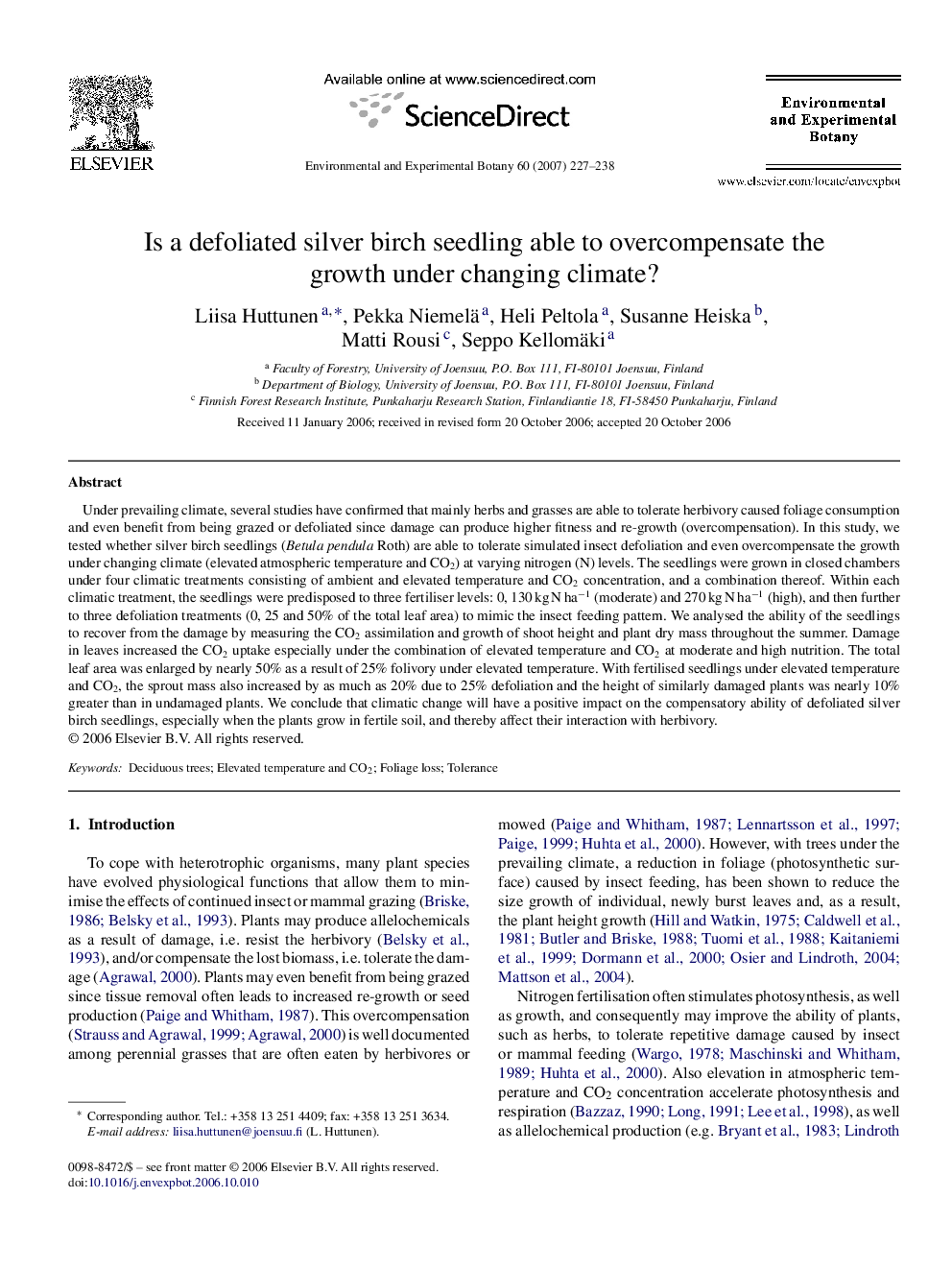| Article ID | Journal | Published Year | Pages | File Type |
|---|---|---|---|---|
| 4555509 | Environmental and Experimental Botany | 2007 | 12 Pages |
Under prevailing climate, several studies have confirmed that mainly herbs and grasses are able to tolerate herbivory caused foliage consumption and even benefit from being grazed or defoliated since damage can produce higher fitness and re-growth (overcompensation). In this study, we tested whether silver birch seedlings (Betula pendula Roth) are able to tolerate simulated insect defoliation and even overcompensate the growth under changing climate (elevated atmospheric temperature and CO2) at varying nitrogen (N) levels. The seedlings were grown in closed chambers under four climatic treatments consisting of ambient and elevated temperature and CO2 concentration, and a combination thereof. Within each climatic treatment, the seedlings were predisposed to three fertiliser levels: 0, 130 kg N ha−1 (moderate) and 270 kg N ha−1 (high), and then further to three defoliation treatments (0, 25 and 50% of the total leaf area) to mimic the insect feeding pattern. We analysed the ability of the seedlings to recover from the damage by measuring the CO2 assimilation and growth of shoot height and plant dry mass throughout the summer. Damage in leaves increased the CO2 uptake especially under the combination of elevated temperature and CO2 at moderate and high nutrition. The total leaf area was enlarged by nearly 50% as a result of 25% folivory under elevated temperature. With fertilised seedlings under elevated temperature and CO2, the sprout mass also increased by as much as 20% due to 25% defoliation and the height of similarly damaged plants was nearly 10% greater than in undamaged plants. We conclude that climatic change will have a positive impact on the compensatory ability of defoliated silver birch seedlings, especially when the plants grow in fertile soil, and thereby affect their interaction with herbivory.
